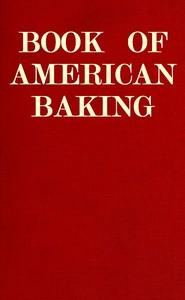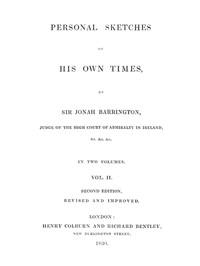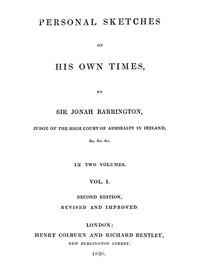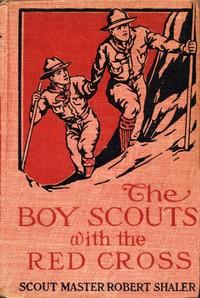Read this ebook for free! No credit card needed, absolutely nothing to pay.
Words: 6244 in 2 pages
This is an ebook sharing website. You can read the uploaded ebooks for free here. No credit cards needed, nothing to pay. If you want to own a digital copy of the ebook, or want to read offline with your favorite ebook-reader, then you can choose to buy and download the ebook.


: Book of American Baking A Practical Guide Covering Various Branches of the Baking Industry Including Cakes Buns and Pastry Bread Making Pie Baking Etc. by Various - Quantity cooking; Baking; Baked products industry United States; Baking United States
A Foreword Milkweed Home Thoughts Life Some Day, Oh Seeker of Dreams Black Hours Before Renewal Hill-Top Hours Letters from Home Chains The Drums Anaesthesia A Summer Night Sappho's Tomb The Wild Swans Pass At Notre Dame The Pilot Doors Spring Floods The Turn of the Year If I Love You What Shall I Care? Hunter and Hunted Apple Blossoms The House of Life Ultimata The Life on the Table You Bid Me to Sleep The Last of Summer At Charing Cross Prescience The Steel Workers The Children The Nocturne The Wild Geese The Day The Revolt Atavism March Twilight The Echo Autumn Faces There Is Strength in the Soil Life-Drunk My Heart Stood Empty One Night in the Northwest Dreamers The Question The Gift of Hate The Dream One Room in My Heart The Meaning The Veil The Man of Dreams April on the Rialto The Surrender The Passing Protestations I Sat in the Sunlight
A FOREWORD
To even the casual reader of poetry who may chance to turn to the following pages it will be evident that the lyrics contained therein have been written without what is commonly known as end-rhyme. It may also be claimed by this reader that the lyrics before him are without rhythm. As such, it may at first seem that they mark an effort in revolt against two of the primary assets of modern versification.
All art, of course, has its ancestry. While it is the duty of poetry both to remember and to honour its inherited grandeurs, the paradoxical fact remains that even this most convention-ridden medium of emotional expression is a sort of warfare between the embattled soul of the artist, seeking articulation, and the immuring traditions with which time and the prosodian have surrounded him.
In painting and in music, as in sculpture and the drama, there has been a movement of late to achieve what may be called formal emancipation, a struggle to break away from the restraints and the technical obligations imposed upon the worker by his artistic predecessors. In one case this movement may be called Futurism, and in another it may be termed Romanticism, but the tendency is the same. The spirit of man is seen in rebellion against a form that has become too intricate or too fixed to allow him freedom of utterance.
Poetry alone, during the last century, seems to have remained stable, in the matter of structure. Few new forms have been invented, and with one or two rare exceptions success has been achieved through ingeniously elaborating on an already established formula and through meticulously re-echoing what has already been said. This has resulted, on the one hand, in a technical dexterity which often enough resembles the strained postures of acrobatism, and, on the other, in that constantly reiterated complaint as to the hollowness and aloofness of modern poetry. Yet this poetry is remote and insincere, not because the modern spirit is incapable of feeling, but because what the singer of to-day has felt has not been directly and openly expressed. His apparel has remained mediaeval. He must still don mail to face Mausers, and wear chain-armour against machine-guns. He must scout through the shadowy hinterlands of consciousness in attire that may be historic, yet at the same time is distressingly conspicuous. And when he begins his assault on those favouring moments or inspirational moods which lurk in the deeper valleys and by-ways of sensibility, he must begin it as a marked man, pathetically resplendent in that rigid steel which is an anachronism and no longer an armour.
Rhyme, from the first, has been imposed upon him. His only escape from rhyme has been the larger utterance of blank verse. Yet the iambic pentameter of his native tongue, perfected in the sweeping sonority of the later Shakespearean tragedies and left even more intimidatingly austere in the organ-like roll of Milton, has been found by the later singer to be ill-fitted for the utterance of those more intimate moods and those subjective experiences which may be described as characteristically modern. Verse, in the nature of things, has become less epic and racial, and more and more lyric and personal. The poet, consequently, has been forced back into the narrower domain so formally and so rigidly fenced in by rhyme. And before touching on the limitations resulting from this incarceration, it may be worth while to venture a brief glance back over the history of what Milton himself denominated as "the jingling sounds of like endings" and Goldsmith characterized as "a vile monotony" and even Howells has spoken of as "the artificial trammels of verse."
It has been claimed that those early poets of Palestine who affected the custom of beginning a number of lines or stanzas with the same letter of the alphabet unconsciously prepared the way for that latter-day ornamental fringe known as end-rhyme. Others have claimed that this insistence of a consonance of terminals is a relique of the communal force of the chant, where the clapping of hands, the stamping of feet, or the twanging of bow-strings marked the period-ends of prehistoric recitative. The bow-string of course, later evolved into the musical instrument, and when poetry became a written as well as a spoken language the consonantal drone of rhyming end-words took the place of the discarded instrument which had served to mark a secondary and wider rhythm in the progress of impassioned recitative.
For the poet to turn his back on rhythm, as at times he has been able to do with rhyme, is an impossibility. For the rhythmising instinct is innate and persistent in man, standing for a law which permeates every manifestation of energy. The great heart of Nature itself beats with a regular systole and diastole. But, rhythmically, the modern versifier has been a Cubist without quite comprehending it. He has been viewing the world mathematically. He has been crowding his soul into a geometrically designed mould. He has bowed to a rule-of-thumb order of speech, arbitrarily imposed on him by an ancestry which wrung its ingenuous pleasure out of an ingenuous regularity of stress and accent. To succeed under that law he must practise an adroit form of self-deception, solemnly pretending to fit his lines to a mould which he actually over-runs and occasionally ignores. He has not been satisfied with the rhythm of Nature, whose heart-beats in their manifold expressions are omnipresent but never confined to any single sustained pulse or any one limited movement. It is not argued that he should ignore rhythm altogether. To do so, as has already been said, would be impossible, since life itself is sustained by the rise and fall of mortal breasts and the beat and throb of mortal hearts. Rhythm is in man's blood. The ear of the world instinctively searches for cadences. The poet's efforts towards symphonic phrasing have long since become habitual and imperative. But that he should confine himself to certain man-made laws of meter, that he should be shackled by the prosodian of the past, is quite another matter. His predecessors have fashioned many rhythms that are pretty, many accentual forms that are cunningly intricate, but at a time when his manner of singing has lost its vital swing it is well for man to forget these formal prettinesses and equally well to remember that poetry is not an intellectual exercise but the immortal soul of perplexed mortality seeking expression.
To abandon fixed rhythm, or meter, for the floating rhythm of the chant may not be an immediate solution of the problem. To follow the Psalms of David, for example, will not suddenly conjure a new school of verse into the world. But to return to the more open movement of the chant, which is man's natural and rudimentary form of song, may constitute a step towards freedom. The mere effort towards emancipation, in fact, is not without its value. It may serve to impress on certain minds the fact that poetry is capable of exhausting one particular form of expression, of incorporating and consuming one particular embodiment of perishable matter and passing on to its newer fields. Being a living organism, it uses up what lies before it, and to find new vigour must forever feed on new forms. Being the product of man's spirit, which is forever subject to change, verse must not be worshipped for what it has been, but for what it is capable of being. No necrophilic regard for its established conventions must blind the lover of beautiful verse to the fact that the primary function of poetry is both to intellectualize sensation and to elucidate emotional experience. If man must worship beauty only as he has known it in the past, man must be satisfied with worshipping that which has lived and now is dead.
A. S.
OPEN WATER
Free books android app tbrJar TBR JAR Read Free books online gutenberg
More posts by @FreeBooks

: Personal Sketches of His Own Times Vol. 2 (of 3) by Barrington Jonah Sir - Barrington Jonah Sir 1760-1834; Judges Ireland Biography; Ireland Social life and customs 18th century; Ireland Social life and customs 19th century


: Personal Sketches of His Own Times Vol. 1 (of 3) by Barrington Jonah Sir - Barrington Jonah Sir 1760-1834; Judges Ireland Biography; Ireland Social life and customs 18th century; Ireland Social life and customs 19th century





